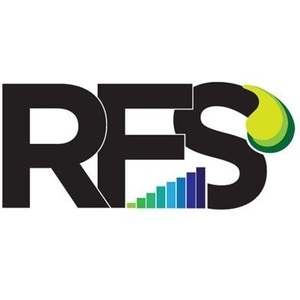EPA publishes third RFS impact report

January 20, 2025
BY Erin Voegele
The U.S. EPA on Jan. 17 published its third triennial report to Congress on biofuels and the environment. The document, the third in a series of required reports to Congress, takes a critical view of the Renewable Fuel Standard’s impact on the environment.
“The Third Report concludes that the effect of the Renewable Fuel Standard Program varies with time and the RFS Program had a modest positive effect on biofuel production and consumption, and thus had a modest negative effect on the environment,” said the EPA in a notice posted to its website. “These endpoints include air and water quality, water quantity, ecosystem health and biodiversity, soil quality, invasive species, and international impacts. The impacts of the RFS Program overlap with the more significant effects of biofuels as an industry.”
Advertisement
Advertisement
The Renewable Fuels Association has slammed the report. “Any objective and science-based analysis of the Renewable Fuel Standard would reveal that the program has, without question, positively impacted the environment. Renewable fuels like ethanol reduce greenhouse gas emissions, slash harmful tailpipe pollution and displace the most toxic components of gasoline. When compared to the fuels it replaces, ethanol is also better for overall soil and water quality,” said Geoff Cooper, president and CEO of the RFA. “EPA may be obligated by law to publish this report every three years—a deadline they have never met—but this iteration hardly adds anything to the previous two attempts. For this third report, we agree with former USDA Secretary Tom Vilsack, who commented on Friday that any study that purports to cover the environmental impacts of the RFS but doesn’t consider greenhouse gas emissions is clearly incomplete.”
Clean Fuels Alliance America also criticized the analysis. “Clean Fuels asked EPA to include analysis of the environmental benefits of displacing fossil fuels – which biodiesel and renewable diesel are rapidly doing – to provide important context for the report,” said Paul Winters, director of public affairs and federal communications at Clean Fuels. “It appears EPA did not do so.”
Advertisement
Advertisement
The EPA is required to report to congress on the environmental and resource conservation impacts of the RFS program under Section 2004 of the Energy Independence and Security Act of 2007. The reports are required to be made on a triennial basis. The first such report was completed in 2011, with the second completed in 2018. The third report builds on the previous two reports and aims to provide an update of the impacts to date of the RFS program on the environment.
According to EPA, the first two reports were unable to separate the effects of the RFS program from the impact of other factors, such as market or other policy effects. The new report includes an attribution analysis that is designed to better separate the effects of the RFS program from other factors that also affect biofuel production and consumption in the U.S.
Development of the new report has been ongoing for several years. A draft version of the third triennial report was published by the EPA in early 2023 and subject to a 60-day public comment period. A full copy of the 1,000-plus final report is available on the EPA’s website.
Related Stories
SAF Magazine and the Commercial Aviation Alternative Fuels Initiative announced the preliminary agenda for the North American SAF Conference and Expo, being held Sept. 22-24 at the Minneapolis Convention Center in Minneapolis, Minnesota.
President Trump on July 4 signed the “One Big Beautiful Bill Act.” The legislation extends and updates the 45Z credit and revives a tax credit benefiting small biodiesel producers but repeals several other bioenergy-related tax incentives.
International Sustainability & Carbon Certification has announced that Environment and Climate Change Canada has approved ISCC as a certification scheme in line with its sustainability criteria under its Clean Fuel Regulations.
Legislation introduced in the California Senate on June 23 aims to cap the price of Low Carbon Fuel Standard credits as part of a larger effort to overhaul the state’s fuel regulations and mitigate rising gas prices.
The government of Brazil on June 25 announced it will increase the mandatory blend of ethanol in gasoline from 27% to 30% and the mandatory blend of biodiesel in diesel from 14% to 15%, effective Aug. 1.
Upcoming Events










